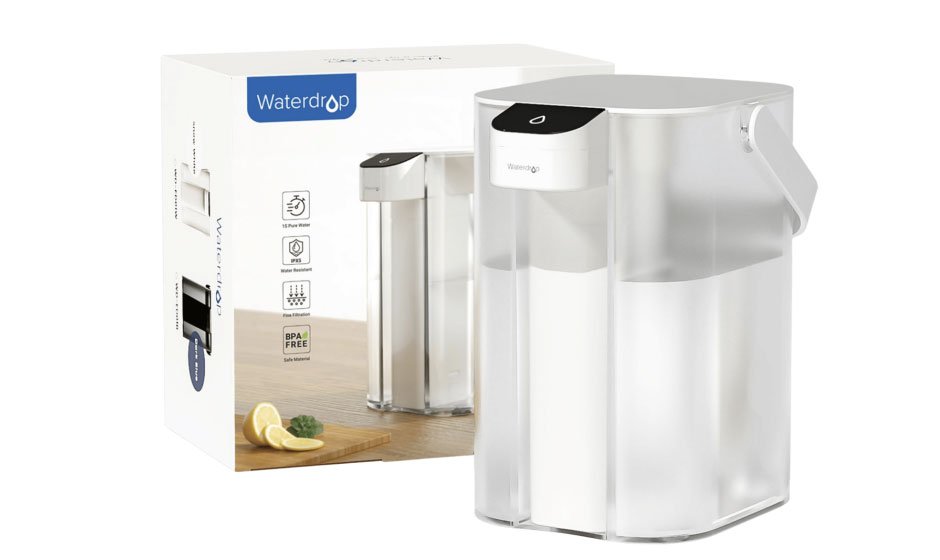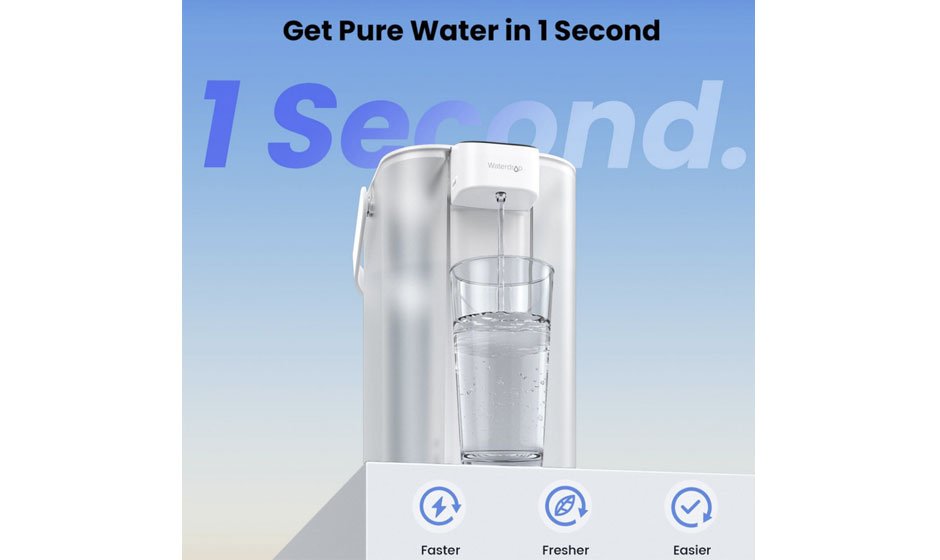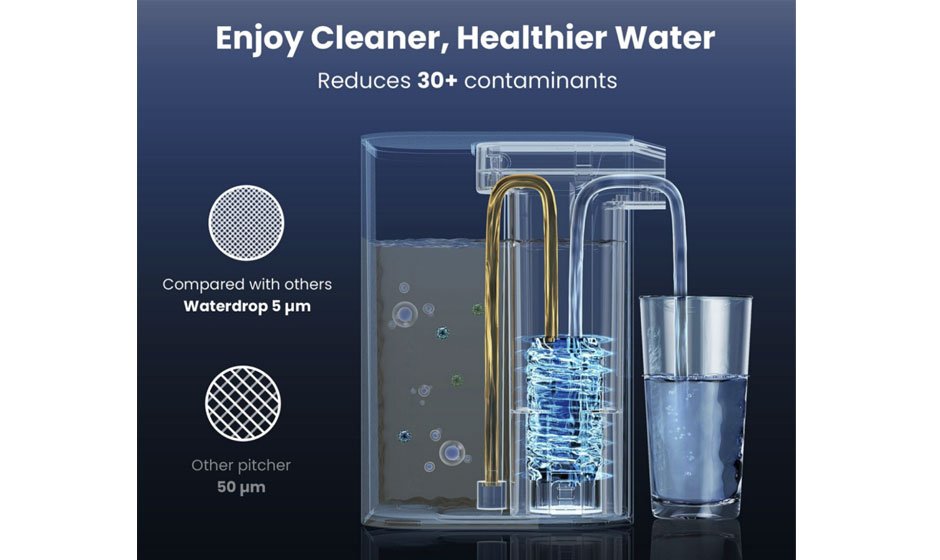What Do You Think the Ideal Countertop Water Filter is in 2023?

In modern life, water quality issues are increasingly gaining attention. With the advancement of technology and people’s pursuit of health, countertop water filters have become a must-have choice for many households.
So, do you know what a Waterdrop countertop filter is as part of a water filtration system for home? How do you choose the one that’s best for you? And what are their pros and cons? Let’s explore together the features of these home water filtration solutions to make an informed decision.
1. What is a Countertop Water Filter?
A countertop water filter, as the name suggests, is a water filtering device placed on the kitchen countertop.
Unlike traditional faucet filters or whole-house water treatment systems, countertop water filters are usually more compact, sleek in design, and easy to install.
Their primary function is to filter out impurities, chlorine, heavy metals, and other harmful substances from tap water, providing families with purer, healthier drinking water.
They typically use multi-stage filtering systems, including activated carbon, ceramics, reverse osmosis membranes, etc., to ensure water purity.
2. How to Choose the Best Water Filter?
When choosing a water filter, one should consider not only its filtering effect but also its durability, maintenance cost, and user experience. First, you need to identify your water quality issues.
Different filters target different water quality problems. For instance, if your water contains a significant amount of chlorine, then a filter with an activated carbon cartridge might be more suitable.

Filtering Effect
Ensure the chosen filter can effectively filter out pollutants you’re concerned about. For example, for heavy metals and organic chemicals, a reverse osmosis filter might be the best choice.
Maintenance Cost
Consider the frequency and cost of cartridge replacement. Some high-end filters might have a higher initial investment, but in the long run, their maintenance cost might be lower.
User Experience
Choose a filter that’s easy to install and operate. Also, consider the filter’s flow rate, noise, and design aesthetics to ensure it blends perfectly into your kitchen environment.
3. Pros and Cons of Countertop Water Filters
Like all products, countertop water filters have their unique advantages and disadvantages. Understanding these can help you make a more informed choice.
Advantages
Convenience
One of the most significant benefits of countertop water filters, compared to whole house RO systems, is their ease of installation. While a whole house RO system might require extensive plumbing modifications, these countertop filters can be set up quickly and effortlessly in minutes, without the need for professional assistance, making them a convenient alternative for immediate water purification needs.
This plug-and-play nature ensures that even those with limited DIY skills can enjoy purified water quickly.
Economy
In the realm of water purification, countertop filters present an affordable option. Their initial cost is generally lower than that of whole-house systems or under-sink installations.
Over time, this can translate to considerable savings, especially when considering the cumulative cost of bottled water purchases that they can potentially replace.
Flexibility
Countertop water filters are not fixed installations. If you decide to move or rearrange your kitchen, the filter can easily move with you.
This portability is especially beneficial for renters who might not have the liberty to make permanent changes to their living spaces.
Efficiency
Modern countertop filters are designed to be highly efficient. They can effectively remove a wide range of contaminants, from common ones like chlorine and lead to more specific ones like certain bacteria or specific chemicals. This ensures that the water you drink is not only tasty but also safe.
Disadvantages
Filtering Range: Compared to whole-house water treatment systems, countertop water filters have a limited filtering range.
Maintenance: Regular cartridge replacement is needed to maintain optimal filtering.
Capacity Limitation: Compared to larger water treatment systems, countertop water filters have a limited processing volume.
4. Why Do We Need Water Filters?

In today’s urban life, even though our water sources are treated and purified, many potential pollutants still exist. These pollutants might pose potential threats to our health.
From pesticide residues, and heavy metals to bacteria, and viruses, tap water might contain various invisible pollutants.
These pollutants might lead to various health issues, such as indigestion, skin problems, or even more severe diseases.
Health Considerations
Long-term intake of water containing harmful substances might harm our health. For example, lead is a neurotoxin, and even a trace amount can harm children’s brain development.
Taste and Smell
Besides health issues, chlorine and other chemicals in water might affect its taste and smell. Using a water filter can provide purer water with a better taste.
Economic Benefits
Although buying a water filter requires some initial investment, in the long run, it can save the cost of buying bottled water and reduce the use of plastic bottles, benefiting the environment.
5. Conclusion
In 2023, as people increasingly focus on health and quality of life, choosing a suitable countertop water filter becomes particularly important.
By understanding the working principle of water filters, their pros and cons, and how to choose the one that’s best for oneself, we can provide our families with safer, purer drinking water.
In this era full of challenges and opportunities, choosing a good water filter is a wise investment for the health of ourselves and our families.



